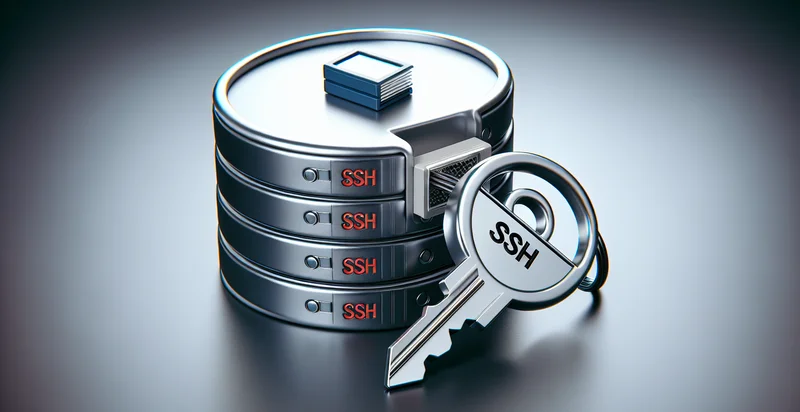Identify if ssh key is in a configuration
using AI
Below is a free classifier to identify if ssh key is in a configuration. Just input your text, and our AI will predict if an SSH key is present - in just seconds.

Contact us for API access
Or, use Nyckel to build highly-accurate custom classifiers in just minutes. No PhD required.
Get started
import nyckel
credentials = nyckel.Credentials("YOUR_CLIENT_ID", "YOUR_CLIENT_SECRET")
nyckel.invoke("if-ssh-key-is-in-a-configuration", "your_text_here", credentials)
fetch('https://www.nyckel.com/v1/functions/if-ssh-key-is-in-a-configuration/invoke', {
method: 'POST',
headers: {
'Authorization': 'Bearer ' + 'YOUR_BEARER_TOKEN',
'Content-Type': 'application/json',
},
body: JSON.stringify(
{"data": "your_text_here"}
)
})
.then(response => response.json())
.then(data => console.log(data));
curl -X POST \
-H "Content-Type: application/json" \
-H "Authorization: Bearer YOUR_BEARER_TOKEN" \
-d '{"data": "your_text_here"}' \
https://www.nyckel.com/v1/functions/if-ssh-key-is-in-a-configuration/invoke
How this classifier works
To start, input the text that you'd like analyzed. Our AI tool will then predict if an SSH key is present.
This pretrained text model uses a Nyckel-created dataset and has 2 labels, including Ssh Key Found and Ssh Key Not Found.
We'll also show a confidence score (the higher the number, the more confident the AI model is around if an SSH key is present).
Whether you're just curious or building if ssh key is in a configuration detection into your application, we hope our classifier proves helpful.
Related Classifiers
Need to identify if ssh key is in a configuration at scale?
Get API or Zapier access to this classifier for free. It's perfect for:
- Security Compliance Monitoring: Organizations can utilize the SSH key detection to ensure compliance with security policies that restrict unauthorized access. By regularly scanning configuration files, they can identify and remediate any instances where SSH keys may have been improperly included.
- Configuration Audit: System administrators can implement an automated audit process that checks for SSH keys within configuration files. This helps maintain a clean and secure environment by tracking changes and ensuring deprecated keys are not left in legacy configurations.
- Incident Response Preparation: In incident response scenarios, quickly identifying SSH keys within configuration files can aid in assessing potential exposure or breaches. Knowing where keys exist allows responders to evaluate risks and take actions to mitigate unauthorized access effectively.
- DevOps Best Practices Enforcement: Teams employing DevOps methodologies can integrate SSH key detection into their CI/CD pipelines. This ensures that only approved keys are used in configurations, promoting secure deployment practices and reducing risk in application delivery.
- Vulnerability Assessment: Security teams can leverage this function as part of a broader vulnerability assessment strategy. By checking configurations for SSH key presence, they can identify potential entry points for attackers and prioritize patching or securing those configurations.
- Configuration Management: Configuration management tools can incorporate SSH key detection to maintain standards across environments. By ensuring configurations are devoid of sensitive SSH keys, organizations can better manage access and maintain operational integrity.
- Cloud Resource Security: In cloud environments, it’s crucial to control SSH access to resources. This use case allows cloud security teams to monitor configurations for SSH keys, ensuring that access is limited to authorized users and preventing unauthorized deployment of resources.


